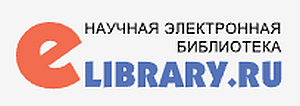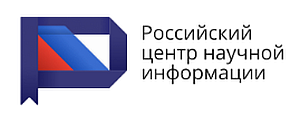Artificial Intelligence in Daily Educational Practices of Russian Students
DOI:
https://doi.org/10.47850/RL.2024.5.4.112-124Keywords:
education, artificial intelligence, higher education, educational technologies, modernization of education.Abstract
The article raises the problem of a possible contradiction between promising areas of application of artificial intelligence technologies in the educational process, presented in the research literature, and specific practices of interaction with AI tools in the everyday reality of students of Russian universities. A review of the research literature is presented, which reflects the position of Russian scientists regarding the most promising areas of application of AI technologies in the educational process of higher education, as well as regarding the barriers and risks associated with these processes. The data of interviews with Russian students are presented, which show that, although students generally highly appreciate the prospects for using AI technologies in the educational process, in practice there are some discrepancies between the potential of this vector of modernization, described in the scientific literature, and the everyday educational practices of Russian students. Conclusions are made that at the moment there remains room for improving modernization processes in the system of higher education through artificial intelligence technologies.
References
Ажыкулов, С. М. (2024). Искусственный интеллект в сфере образования. Архонт. № 4 (43). С. 44-48.
Azhykulov, S. M. (2024). Artificial Intelligence in Education. Archon. No. 4 (43). Pp. 44-48. (In Russ.)
Алейникова, Д. В. (2023). Искусственный интеллект в преподавании и учении: к вопросу о качестве образовательного продукта. Вестник Московского государственного лингвистического университета. Образование и педагогические науки. № 4 (849). С. 16-20.
Aleinikova, D. V. (2023). Artificial Intelligence in Teaching and Learning: On the Quality of the Educational Product. Bulletin of Moscow State Linguistic University. Education and Pedagogical Sciences. No. 4 (849). Pp. 16-20. (In Russ.)
Беликова, Е. К. (2023). О философском аспекте применения ИИ-решений в сфере высшего образования. Социология. № 5. С. 220-226.
Belikova, E. K. (2023). On the Philosophical Aspect of Using AI solutions in Higher Education. Sociology. No. 5. Pp. 220-226. (In Russ.)
Гаркуша, Н. С., Городова, Ю. С. (2023). Педагогические возможности ChatGPT для развития когнитивной активности студентов. Профессиональное образование и рынок труда. № 11 (1 (52)). С. 6-23.
Garkusha, N. S., Gorodova, Yu. S. (2023). Pedagogical Possibilities of ChatGPT for Developing Students' Cognitive Activity. Professional Education and Labor Market. No. 11 (1 (52)). Pp. 6-23. (In Russ.)
Городнова, Н. В. (2022). Моделирование развития и внедрения систем «слабого» и «сильного» искусственного интеллекта: социально-экономические аспекты. Вопросы инновационной экономики. № 12 (1). С. 123-140.
Gorodnova, N. V. (2022). Modeling the Development and Implementation of “Weak” and “Strong” Artificial Intelligence Systems: Socio-economic Aspects. Issues of Innovative Economics. No. 12 (1). Pp. 123-140. (In Russ.)
Другова, Е. А., Журавлева, И. И., Захарова, У. С., Сотникова, В. Е., Яковлева, К. И. (2022). Искусственный интеллект для учебной аналитики и этапы педагогического проектирования: обзор решений. Вопросы образования. № 4. С. 107-153.
Drugova, E. A., Zhuravleva, I. I., Zakharova, U. S., Sotnikova, V. E., Yakovleva, K. I. (2022). Artificial Intelligence for Learning Analytics and Stages of Pedagogical Design: A Review of Solutions. Education Issues. No. 4. Pp. 107-153. (In Russ.)
Зажигалкин, А. В., Мансуров, Т. Т., Мерецков, О. В. (2024). Регулирование искусственного интеллекта в образовании. Компетентность. № 6. С. 3-10. DOI: 10.24412/1993-8780-2024-6-03-10
Zazhigalkin, A. V., Mansurov, T. T., Meretskov, O. V. (2024). Regulation of Artificial Intelligence in Education. Competence. No. 6. Pp. 3-10. DOI: 10.24412/1993-8780-2024-6-03-10 (In Russ.)
Ивахненко, Е. Н., Никольский, В. С. (2023). ChatGPT в высшем образовании и науке: угроза или ценный ресурс? Высшее образование в России. Т. 32. № 4. С. 9-22. DOI: 10.31992/0869-3617-2023-32-4-9-22
Ivakhnenko, E. N., Nikolsky, V. S. (2023). ChatGPT in Higher Education and Science: A Threat or a Valuable Resource? Higher Education in Russia. Vol. 32. No. 4. Pp. 9-22. DOI: 10.31992/0869-3617-2023-32-4-9-22 (In Russ.)
Лукичев, П. М. (2024). Применение технологий искусственного интеллекта в образовании как потенциал экономического развития. Вестник Удмуртского университета. Серия «Экономика и право». № 34 (3). С. 442-449. DOI: 10.35634/2412-9593-2024-34-3-442-449
Lukichyov, P. M. (2024). Application of Artificial Intelligence Technologies in Education as a Potential for Economic Development. Bulletin of Udmurt University. Series “Economics and Law”. No. 34 (3). Pp. 442-449. DOI: 10.35634/2412-9593-2024-34-3-442-449 (In Russ.)
Мантуленко, В. В., Мантуленко, А. В. (2024). Искусственный интеллект в образовании: противоречия в использовании. Концепт. № 6. С. 221-237. DOI: 10.24412/2304-120X-2024-11092
Mantulenko, V. V., Mantulenko, A. V. (2024). Artificial Intelligence in Education: Contradictions in Use. Concept. No. 6. Pp. 221-237. DOI: 10.24412/2304-120X-2024-11092 (In Russ.)
Миндигулова, А. А. (2022). Возможности и ограничения инструментов искусственного интеллекта в образовании. Современное педагогическое образование. № (3). С. 137-141.
Mindigulova, A. A. (2022). Potential and Limitations of Artificial Intelligence Tools in Education. Modern Pedagogical Education. No. (3). Pp. 137-141. (In Russ.)
Морозевич, Е. С., Коротких, В. С., Кузнецова, Е. А. (2022). Разработка модели формирования индивидуальных образовательных траекторий с использованием методов машинного обучения. Бизнес-информатика. № 16 (2). С. 21-35.
Morozevich, E. S., Korotkikh, V. S., Kuznetsova, E. A. (2022). Development of a Model for the Formation of Individual Educational Trajectories Using Machine Learning Methods. Business Informatics. No. 16 (2). Pp. 21-35. (In Russ.)
Осипова, Л. Б. (2024). Технологии искусственного интеллекта в системе высшего образования. Инновационное развитие профессионального образования. № 2 (42). С. 41-47.
Osipova, L. B. (2024). Artificial Intelligence Technologies in the Higher Education System. Innovative Development of Professional Education. No. 2 (42). Pp. 41-47. (In Russ.)
Платов, А. В., Гаврилина, Ю. И. (2024). Искусственный интеллект в образовании: эволюция и барьеры. Научный результат. Педагогика и психология образования. № 10 (1). С. 26-43. DOI: 10.18413/2313-8971-2024-10-1-0-3
Platov, A. V., Gavrilina, Yu. I. (2024). Artificial Intelligence in Education: Evolution and Barriers. Scientific Result. Pedagogy and Psychology of Education. No. 10 (1). Pp. 26-43. DOI: 10.18413/2313-8971-2024-10-1-0-3 (In Russ.)
Пчелинцева, Н. В., Картечина, Н. В., Абалуев, Р. Н. (2023). Технологии искусственного интеллекта в образовании: проблемы и перспективы развития. Наука и образование. № 6 (1). С. 119-127.
Pchelintseva, N. V., Kartechina, N. V., Abaluev, R. N. (2023). Artificial Intelligence Technologies in Education: Problems and Development Prospects. Science and Education. No. 6 (1). Pp. 119-127. (In Russ.)
Резаев, А. В., Трегубова, Н. Д. (2023). ChatGPT и искусственный интеллект в университетах: какое будущее нам ожидать? Высшее образование в России. № 32 (6). С. 19 37.
Rezaev, A. V., Tregubova, N. D. (2023). ChatGPT and Artificial Intelligence in Universities: What Future Can We Expect? Higher Education in Russia. No. 32 (6). Pp. 19-37. (In Russ.)
Розов, К. В., Абрамова, М. А. (2024). Трансформация методики преподавания технологий искусственного интеллекта в условиях цифровизации российского общества. Философия образования. Т. 24. № 2. С. 87-102. DOI: https://doi.org/10.15372/PHE20240206
Rozov, K. V., Abramova, M. A. (2024). Transformation of the Methodology of Teaching Artificial Intelligence Technologies in the Context of Digitalization of Russian Society. Philosophy of Education. Vol. 24. No. 2. Pp. 87-102. DOI: https://doi.org/10.15372/PHE20240206 (In Russ.)
Соколов, Н. В., Виноградский, В. Г. (2022). Искусственный интеллект в образовании: анализ, перспективы и риски в РФ. Проблемы современного педагогического образования. № 76-2. С. 166-169.
Sokolov, N. V., Vinogradsky, V. G. (2022). Artificial Intelligence in Education: Analysis, Prospects and Risks in the Russian Federation. Problems of Modern Pedagogical Education.
No. 76-2. Pp. 166-169. (In Russ.)
Сысоев, П. В. (2023). Искусственный интеллект в образовании: осведомленность, готовность и практика применения преподавателями высшей школы технологий искусственного интеллекта в профессиональной деятельности. Высшее образование в России. № 32 (10). С. 9-33. DOI: 10.31992/0869-3617-2023-32-10-9-33
Sysoev, P. V. (2023). Artificial Intelligence in Education: Awareness, Readiness, and Practice of Using Artificial Intelligence Technologies in Professional Activities by Higher Education Teachers. Higher Education in Russia. No. 32 (10). Pp. 9-33. DOI: 10.31992/0869-3617-2023-32-10-9-33 (In Russ.)
Терехова, Е. С., Пучкова, Н. Н., Новикова, Л. В. (2024). Анализ востребованности использования нейросетей для решения учебных задач. Концепт. № 8. С. 1-17. DOI: 10.24412/2304-120X-2024-11123
Terekhova, E. S., Puchkova, N. N., Novikova, L. V. (2024). Analysis of the demand for using neural networks to solve educational problems. Concept. No. 8. Pp. 1-17. DOI: 10.24412/2304-120X-2024-11123 (In Russ.)
Филатова, О. Н., Булаева, М. Н., Гущин, А. В. (2022). Применение нейросетей в профессиональном образовании. Проблемы современного педагогического образования.
№ 77-3. С. 243-245.
Filatova, O. N., Bulaeva, M. N., Gushchin, A. V. (2022). Application of neural networks in vocational education. Problems of modern teacher education. No. 77-3. Pp. 243-245. (In Russ.)
Шершнева, Т. В. (2023). Анализ возможностей и ограничений использования искусственного интеллекта в образовательном процессе технического университета. Вестник Прикамского социального института. № 2 (95). С. 133-139.
Shershneva, T. V. (2023). Analysis of the possibilities and limitations of using artificial intelligence in the educational process of a technical university. Bulletin of the Prikamsky Social Institute. No. 2 (95). Pp. 133-139. (In Russ.)
Шобонов, Н. А., Булаева, М. Н., Зиновьева, С. А. (2023) Искусственный интеллект в образовании. Проблемы современного педагогического образования. № 79-4. С. 288-290.
Shobonov, N. A., Bulaeva, M. N., Zinovyeva, S. A. (2023) Artificial intelligence in education. Problems of modern teacher education. No. 79-4. Pp. 288-290. (In Russ.)
Downloads
Published
How to Cite
Issue
Section
License

This work is licensed under a Creative Commons Attribution-NonCommercial-NoDerivatives 4.0 International License.
https://oc.philosophy.nsc.ru/remote.php/webdav/%D0%94%D0%BE%D0%B3%D0%BE%D0%B2%D0%BE%D1%80%20%D1%81%20%D0%B0%D0%B2%D1%82%D0%BE%D1%80%D0%BE%D0%BC%20RL-%D0%BF%D1%80%D0%B0%D0%B2.doc










